I could almost, barely, slightly, kind of, well not really, tolerate Black Friday if I thought people were shoving and shouting, and this year occasionally shooting each other *, in order to find the finest Christmas gifts for their family and friends. However, somehow I suspect this is not what’s going on here.
- As you probably know, the shooter in the video above escaped. Police mistakenly killed a shopper instead.
Long ago when I was young (here comes the old man again), there was an enjoyable pre-Christmas “hustle and bustle”, as people hit the stores to buy Christmas presents for others. In no way was it like Black Friday and what now follows.
And yes, I know retailers get most of their annual profit (that is, get in the “black”, out of the “red”) between Black Friday and Christmas – but really is this the only way to do it? to destroy the Church’s holy Advent season of prayer, quiet preparation and fasting? This is what both Eastern and Western Christians intend during Advent. Westerners don’t have the Advent fast anymore, but their Advent also is supposed to be a time of waiting for the Nativity of Christ. * In fact their Advent worship expresses this more clearly than ours does.
- If you want to catch the true spirit of Advent, settle your soul and then take a few minutes and quietly and unhurriedly read the Advent Paraklisis Service: http://ww1.antiochian.org/sites/default/files/advent_paraklesis.pdf If your parish offers this service publicly, try to attend. Here in Cedarburg, all the stores are open for the “Five Festive Fridays” before Christmas – and downtown is very lovely, beautifully and tastefully decorated, and crowded. Meanwhile at Saint Nicholas just two blocks west, we offer the Advent Paraklisis Service on “Four Fasting Fridays” before Christmas. Hardly anybody attends.
Modern Advent has been taken over by the commercial interests, and not only in the United States. Here, for example is Black Friday…

in Canada above, where it says they are more mannerly about it (Canadian readers: is this true?),

and in France where they get excited like us, but where the day is still very controversial,

and in China, where it’s said to be even wilder than in the US. The day after American Thanksgiving in China? I don’t understand.
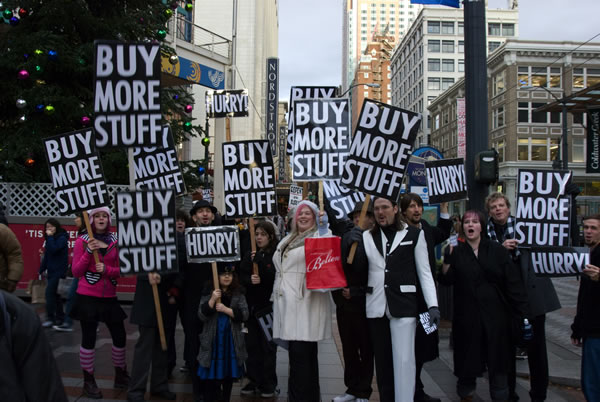
Wherever we find it, the point is clear – to tempt us to the sin of…
Greed
The passion, the “besetting sin”, of the modern world is Greed, pure – no impure Greed.
Greed is defined in the Antiochian Pocket Prayer Book as “too great a desire for money or worldly goods”. Now, of course the Church does not teach that these are evil – as some heretical groups like the Gnostics have believed. How could we? God created us with bodies and material needs, and as Jesus said, “Your heavenly Father knows you need these things.” Matthew 6:32 Christianity has been called the most materialistic of religions: We believe that God created the world and called it good. We believe that Christ our God was made flesh. We believe that God comes to us through matter: bread, wine, water, oil. The Bible does not say that money is the root of all evil, rather that “the love of money is the root of all evil”. Proverbs 30:8,9, quoted in I Timothy 6:10
What is the cause of greed? It usually begins with good intentions: the desire to provide for oneself and one’s family, to provide for one’s old age and not be a burden to family or society. Or it may begin with the desire to enjoy life – which also is not evil. God “richly provides all things for us to enjoy.” I Timothy 6:17 But as we know, no amount of money can buy complete security, and there are always more things to be enjoyed, and this can easily get out of control. Money and the things it can buy become an end in themselves. How it does it go wrong? The devil’s trick is always to take what is good and twist it into evil. He whispers in our ears: “You 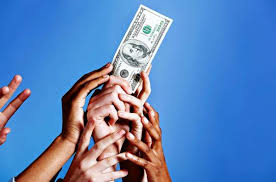 need more money, you must have ‘more stuff’ [see above], no matter how you get it; it doesn’t matter whether you’re even enjoying it; just get more, more, more.” One year on the day before Lent, as I was stuffing chocolate after chocolate into my mouth, I heard myself saying to myself, “Oh, I’ll be so glad tomorrow when I can stop this.”
need more money, you must have ‘more stuff’ [see above], no matter how you get it; it doesn’t matter whether you’re even enjoying it; just get more, more, more.” One year on the day before Lent, as I was stuffing chocolate after chocolate into my mouth, I heard myself saying to myself, “Oh, I’ll be so glad tomorrow when I can stop this.”
And in our society, Satan has many helpers. Now, don’t misunderstand: I believe in free enterprise, with as little government involvement as possible. (The argument is only about how much government involvement is necessary for the good of society. Nobody, I think, wants none. But let’s not chase that rabbit today.) I think it is the least dangerous economic system – which is not saying much! But our system presently is badly twisted out of shape, has got out of control. The Sunday newspaper, what’s left of it, used to contain chiefly interesting articles, but now it’s mostly ads. TV commercials get ever longer and more frequent and louder. Online we see ever more ads. We are bombarded continually with lies and propaganda worthy of 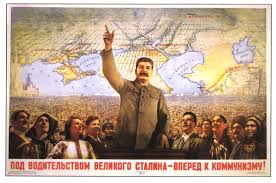 the Communists and Nazis – spiritually harmful, physically harmful propaganda designed to convince us to “buy more stuff”,
the Communists and Nazis – spiritually harmful, physically harmful propaganda designed to convince us to “buy more stuff”,  eat things that are bad for us, that we need things that we do not need, and that we should desire things
eat things that are bad for us, that we need things that we do not need, and that we should desire things 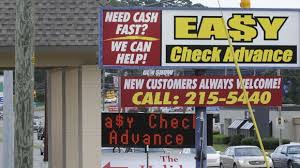 that we’ve never heard of before and got along without just fine, that we must have the “perfect house” (see HGTV, which I’m afraid I enjoy watching, but really, folks…? ) and if we don’t buy it all now it’s the end of the world as we know it. We’re told that if we don’t spend more the national economy is going to tank. And so we have a society of increasingly mindless consumers spending themselves into debt. As a result there’s more propaganda telling us how we can painlessly refinance ourselves out of that!
that we’ve never heard of before and got along without just fine, that we must have the “perfect house” (see HGTV, which I’m afraid I enjoy watching, but really, folks…? ) and if we don’t buy it all now it’s the end of the world as we know it. We’re told that if we don’t spend more the national economy is going to tank. And so we have a society of increasingly mindless consumers spending themselves into debt. As a result there’s more propaganda telling us how we can painlessly refinance ourselves out of that!
Greed, a deadly sin, has become a virtue in America and much of the world. So the rich are getting vastly richer, grabbing all they can get for themselves: they and their companies avoid paying taxes, while the rest of us pay the country’s bills, and the poor get poorer, and who cares? because greed is now a virtue.
And, for those who are chiefly concerned about the sin of lust, why are we propagandized about sex? It isn’t about sex. It’s about greed. Some people are making a fortune for themselves by inflaming sexual desires, selling sex and porn, and they don’t care how it affects society, don’t care what it does to our youth and to everyone, because it makes money, and in our society greed is no longer a sin.
When is the last time you heard one of our so-called Bible TV preachers or one of our pious politicians condemn greed?
What is the cure for Greed?
1 We need to begin by listening to some actual Bible teaching. Jesus said, “A man’s life is not measured by the amount of his  possessions.” Luke 12:15 Jesus said “You cannot serve God and mammon.” Luke 6:24 Mammon was the god of money. Greed was the only sin which Christ “demonized”, as if it is a Power that comes at us. The rich farmer had his barns full, had security for many years and then he died. And God said to him,”You fool! This night your soul is required of you.”Luke 12:20 Surprise! You can’t take it with you. Jesus said, “How hard it is for the rich to enter the Kingdom of heaven.” Matthew 19:23 Jesus said “if you cannot be trusted with unrighteous money, why should God give you the wealth that is real?” Luke 16:11 , that which is infinitely better than all this stuff. Jesus said “Lay not up for yourselves treasures on earth where moth and rust corrupt and thieves break in and steal, but lay up for yourselves treasure in heaven…”, Matthew 6:19-20 – treasure that is secure, treasure that you can take with you. That treasure is God and people and your immortal soul. Those are what you should spend your money on: God and people. For as Saint Paul wrote, “Those who desire to be rich fall into temptation and a snare, and into many foolish and harmful lusts which drown men in destruction and they lose their souls.” I Timothy 6:9 And brothers and sisters, by the standards of the ancient world, most of us today, most of us who can afford a computer to read this Blog, are rich.
possessions.” Luke 12:15 Jesus said “You cannot serve God and mammon.” Luke 6:24 Mammon was the god of money. Greed was the only sin which Christ “demonized”, as if it is a Power that comes at us. The rich farmer had his barns full, had security for many years and then he died. And God said to him,”You fool! This night your soul is required of you.”Luke 12:20 Surprise! You can’t take it with you. Jesus said, “How hard it is for the rich to enter the Kingdom of heaven.” Matthew 19:23 Jesus said “if you cannot be trusted with unrighteous money, why should God give you the wealth that is real?” Luke 16:11 , that which is infinitely better than all this stuff. Jesus said “Lay not up for yourselves treasures on earth where moth and rust corrupt and thieves break in and steal, but lay up for yourselves treasure in heaven…”, Matthew 6:19-20 – treasure that is secure, treasure that you can take with you. That treasure is God and people and your immortal soul. Those are what you should spend your money on: God and people. For as Saint Paul wrote, “Those who desire to be rich fall into temptation and a snare, and into many foolish and harmful lusts which drown men in destruction and they lose their souls.” I Timothy 6:9 And brothers and sisters, by the standards of the ancient world, most of us today, most of us who can afford a computer to read this Blog, are rich.
So the first step, when you hear all the propaganda, is to stop and think for yourself, quote the Bible to yourself. Is this what life is really all about? Is all this lust for things making us happier? Is greed creating a better and kinder society?
And then, especially if greed is your particular weakness:
2 Simplify your life. Almost all of us in our culture need far less than we have. Cut back on what you buy, on what you’ve got. Again, the monks and nuns are the Church’s witness to the fact that we don’t really need much. Father Barnabas (+of blessed memory) was our parish’s “monk on Mount Athos”. He was chrismated here and only two years later was settled at Karakallou Monastery on Athos and remained there the rest of his life. He owned nothing and (as I described last week) he ate what I called “Greek medieval peasant food” (yuck!) and he was a happy man. So give up many things. Obviously we live in the world, and we have financial responsibilities. Pay your bills. Feed your kids. Try to get them through college. Don’t be stingy with your spouse. But cut back on yourself. Prove to yourself that you don’t need all this stuff.
3 Give lots of money away. Regarding money, John Wesley the Methodist preacher said, “Earn all you can, give all you can, save all you can”. He listed giving second. Is that scary? Only at first. Christ told us how it works. He said “Seek first the Kingdom of God and his righteousness, and all these things will be yours as well.” Matthew 6:33 The Apostle Paul explained God’s economic system: “God who creates all things is able to make all things abound.” 2 Corinthians 9:6-15 It is in the nature of things that “he who sows sparingly reaps sparingly, he who sows bountifully will reap bountifully.” 2 Corinthians 9:6 Give lots away and you’ll find that God will give even more back to you, in one way or another. Those who practice this, who give sacrificially to Church and charity, know that it works. If we don’t open our hands and let go of what we’ve got, how can we take hold of the greater gifts that God wants to give us?
We have practiced this at Saint Nicholas, Cedarburg, from the day we were founded almost thirty 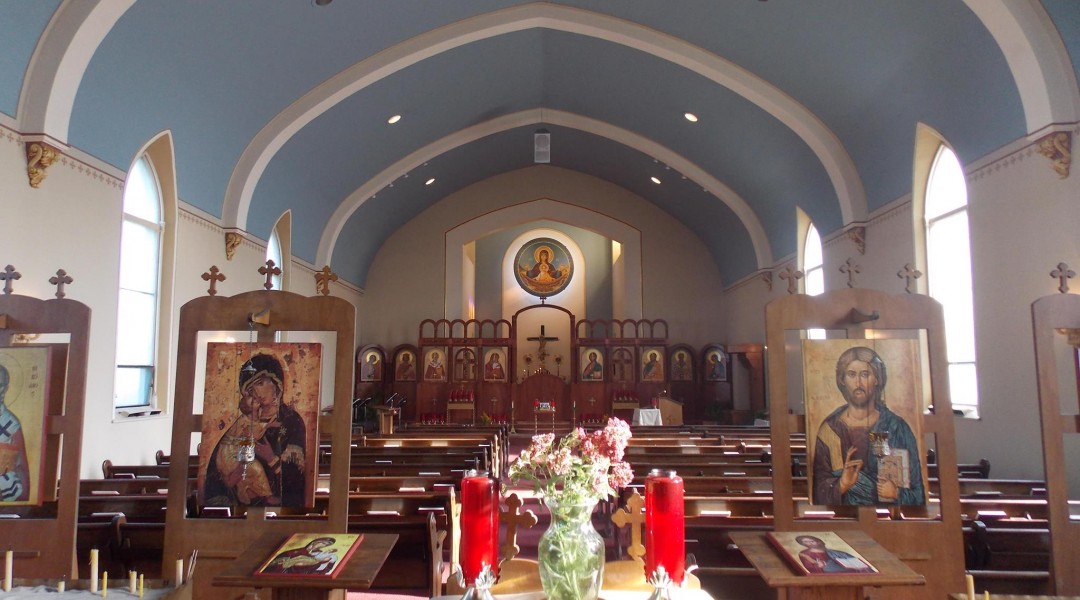 years ago. We had no money to spare at first, and the parish council thought I was crazy when I insisted on this: Off the top each month, we have given 10% to the Archdiocese and 10% to charity, plus many additional gifts – just two weeks ago $5000 for a special need. I figure that our little church has now given away well over half a million dollars. I say this not to brag but only to point out that it works. We have never had an unpaid bill. Our church building was paid off long ago. We have a good bit of money saved for a rainy day. (Literally. Our slate roof is over a century old.) In the process, we at Saint Nicholas have seen for ourselves how God’s economic system works.
years ago. We had no money to spare at first, and the parish council thought I was crazy when I insisted on this: Off the top each month, we have given 10% to the Archdiocese and 10% to charity, plus many additional gifts – just two weeks ago $5000 for a special need. I figure that our little church has now given away well over half a million dollars. I say this not to brag but only to point out that it works. We have never had an unpaid bill. Our church building was paid off long ago. We have a good bit of money saved for a rainy day. (Literally. Our slate roof is over a century old.) In the process, we at Saint Nicholas have seen for ourselves how God’s economic system works.
Do you want to know the chief reason why the United States government has financial problems, why we keep running short of money? There are many economic theories about this, but I think in the end it has little to do with worldly economics. It’s because we are not cooperating with God’s economic plan as spelled out in the Bible.
Here are figures regarding foreign aid, provided by OECD (Organization for Economic Co-operation and Development), which was founded by the United States and many other countries in 1961. OECD monitors the total amount given by countries for economic development and needs of the poor around the world. Now read carefully: The United States is the largest donor in absolute dollars, since we have by far the largest economy. However in terms of percentage of gross income, the US currently comes in 20th of member countries. We spend approximately 0.17%. Sweden is now first, giving 1.40% of their gross national income. The US is just ahead of Greece which, despite their recession, gives 0.14% If we add countries which are not members of OECD, the US would rate considerably lower. Check it out for yourself: https://en.wikipedia.org/w This reflects the usual pattern of charitable giving: proportionally the poor give the most, and the rich give the least.
“Those who sow sparingly reap sparingly. Those who sow bountifully reap bountifully.” We act out God’s principle every Sunday in the Divine Liturgy. We let go of ourselves, offer ourselves to God under the forms of bread and wine, and look what we get back in return: heaven, eternity, the Body and Blood of Christ our God. Everything in life works like that. And after we’ve applied this principle to our money and possessions for a while, we learn to give not grudgingly, as Paul says, but cheerfully. For we are cured of greed. We see how much more pleasant it is to be generous instead of being greedy, how much joy it brings. We discover that we don’t need to clutch, cling, worry about money. Really, are greedy people happy? They’re consumed with anxiety: “How can I hang onto what I’ve got? I’ve got to get more.” But now we know by experience that God provides. 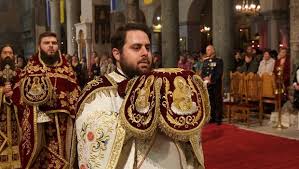
There’s an old saying: “God never allows anyone to outdo him in generosity”. And that is the cure for greed.
Next Week: Christmas – a Fairy Tale?
Coming up: The History of Everything

Well said. I’ve worked retail on Black Friday, and it’s a strange day indeed. Even though where I worked typically had no specials, and kept regular hours, you would still see people lined up well before we opened, hoping to score something. I could never understand the mad rush to “save” by spending.
But I would like to offer a slight correction on the term Black Friday. It actually originated in Philadelphia, from their police department. You see, the cops hated working that day, especially downtown where, even decades before the doorbusters, people would go shopping, and there would be fighting, jostling, traffic, and accidents. It was one shift they all dreaded.
The notion that it was the day that retailers started running in the black is something of myth – any retailer that ran red for 3/4 or more of the year would be toast. But they do make a lot of money during that run from Thanksgiving through Christmas.
Thanks for the correction, Skip. I had seen my explanation of Black Friday somewhere on the internet. Moral: Don’t believe everything you read online – including here!
I really enjoy your posts about the seven deadly sins, I’m looking forward to the next one.
There’s something called “single’s day” in China that is even more popular than Black Friday for shopping. Strange.
I’m newly baptized to Orthodoxy, and am enjoying your blog (I know this post is from awhile back, but I only started reading a few weeks ago and am playing catch up). I can honestly say that, having worked in retail as a young woman, I was instantly cured of any intention to spend money on Black Friday. I’m grateful for that early lesson. I was almost smug. But how many times have I lusted over having a better kitchen gadget, cute shoes (but oh they’re on SALE), or upgrading my phone, or having a nicer car, or a house in a better (read: more expensive) neighborhood? Tons! Lord have mercy on me a sinner.